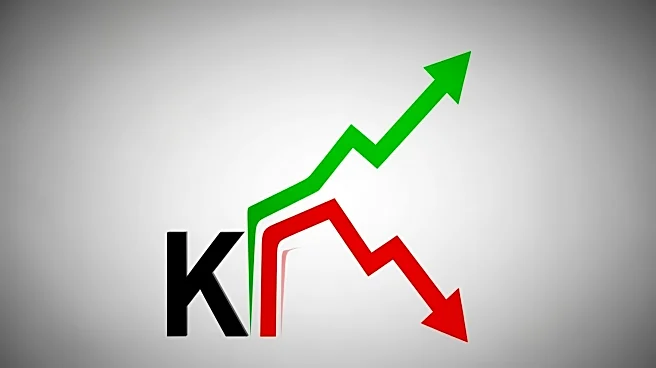What's Happening?
Recent data and earnings reports indicate a 'K-shaped' economic recovery in the United States, where affluent consumers are thriving while lower- and middle-income individuals face economic challenges.
The affluent benefit from a booming stock market and rising home values, while others struggle with a shaky job market, high interest rates, and inflation. Key sectors reflecting this divide include the automotive industry, where new vehicle costs have surpassed $50,000, and repossession rates have increased. In the airline industry, premium seat sales are expected to outpace coach seats. Consumer goods also show disparity, with high-end products like Apple's iPhone 17 seeing strong sales, while budget-conscious consumers alter their purchasing habits.
Why It's Important?
The emergence of a K-shaped economy highlights growing economic inequality in the U.S., with potential implications for social and political stability. As wealthier individuals continue to prosper, the gap between economic classes may widen, leading to increased social tensions and potential policy challenges. This economic divide could influence consumer behavior, investment patterns, and political discourse. The situation underscores the need for policymakers to address underlying economic disparities to ensure a more equitable recovery and prevent long-term societal impacts.
Beyond the Headlines
The K-shaped economic recovery raises ethical and cultural questions about the sustainability of current economic models. The disparity in economic outcomes may lead to increased calls for policy interventions aimed at reducing inequality and promoting inclusive growth. Additionally, the trend could influence cultural attitudes towards wealth and consumption, potentially reshaping societal values and priorities. Long-term, addressing the root causes of economic inequality may require comprehensive policy reforms and collaboration between government, businesses, and civil society.








